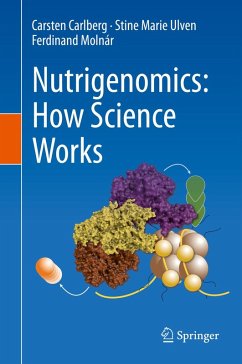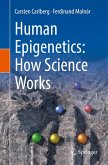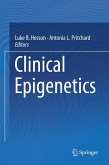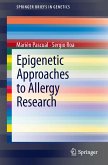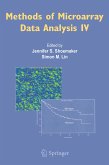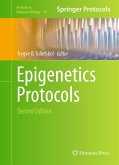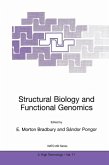The fascinating area of Nutrigenomics describes this daily communication between our diet and our genome. This book describes how nutrition shapes human evolution and demonstrates its consequences for our susceptibility to diseases, such as diabetes and atherosclerosis. Inappropriate diet can yield stress for our cells, tissues and organs and then it is often associated with low-grade chronic inflammation. Overnutrition paired with physical inactivity leads to overweight and obesity and results in increased burden for a body that originally was adapted for a life in the savannahs of East Africa. Therefore, this textbook does not discuss a theoretical topic in science, but it talks about real life and our life-long "chat" with diet. We are all food consumers, thus each of us is concerned by the topic of this book and should be aware of its mechanisms.
The purpose of this book is to provide an overview on the principles of nutrigenomics and their relation to health or disease. The content of this book is based on the lecture course "Nutrigenomics", which is held since 2003 once per year by Prof. Carlberg at the University of Eastern Finland in Kuopio. The book represents an updated but simplified version of our textbook "Nutrigenomics" (ISBN 978-3-319-30413-7). Besides its value as a textbook, "Nutrigenomics: how science works" will be a useful reference for individuals working in biomedicine.
Dieser Download kann aus rechtlichen Gründen nur mit Rechnungsadresse in A, B, BG, CY, CZ, D, DK, EW, E, FIN, F, GR, HR, H, IRL, I, LT, L, LR, M, NL, PL, P, R, S, SLO, SK ausgeliefert werden.

